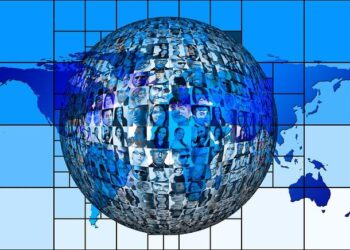Matin’s story is one of resilience and transformation amid the ongoing challenges faced by displaced populations worldwide. In Bosnia and Herzegovina, where refugees and asylum seekers often navigate uncertain futures, Matin’s journey from fear to a sense of belonging sheds light on the crucial work of the UN Refugee Agency (UNHCR). This article explores how, through support and community integration efforts, individuals like Matin find hope and stability in a country still healing from its own recent past.
Matin’s Struggle to Overcome Fear Amidst Displacement in Bosnia and Herzegovina
Matin’s experience of displacement in Bosnia and Herzegovina exposed him to profound uncertainty and isolation. Struggling with the overwhelming fear of an unknown future, he often found himself caught between the remnants of his past life and the harsh realities of refugee camps. The psychological impact was immediate: sleepless nights, anxiety, and a persistent feeling of vulnerability. His story reflects the widespread trauma faced by thousands uprooted by conflict, highlighting the urgent need for comprehensive mental health support alongside physical aid.
Through persistent community engagement programs and counseling services provided by UNHCR, Matin has begun to piece together a new sense of stability and hope. Key factors in his gradual transformation include:
- Social Integration: Connecting with local families and fellow displaced persons to rebuild trust and companionship.
- Educational Opportunities: Access to language classes and vocational training that foster independence.
- Safe Spaces: Participation in youth groups and cultural activities aimed at restoring a sense of normalcy.
| Support Element | Impact on Matin |
|---|---|
| Psychosocial Counseling | Reduced anxiety and increased resilience |
| Community Engagement | Built friendships and a network of support |
| Vocational Training | Empowered with skills for future employment |
Building Bridges of Belonging Through Community Support and UNHCR Initiatives
When Matin arrived in Bosnia and Herzegovina, his world was shadowed by uncertainty and isolation. Yet, through the unwavering support of local communities and UNHCR initiatives, his experience transformed into one of hope and inclusion. Community centers became sanctuaries where Matin could share his story, build friendships, and regain a sense of identity. The agency’s integration programs, focusing on language classes, employment opportunities, and psychosocial support, played a crucial role in turning strangers into allies and fear into belonging.
Key programs fostering belonging include:
- Community mentorship linking refugees with local volunteers
- Language and vocational training tailored to individual needs
- Cultural exchange events promoting mutual understanding
- Access to healthcare and legal assistance ensuring safety and dignity
| Program | Impact |
|---|---|
| Mentorship | Increased social connectivity |
| Language Training | Improved communication & job prospects |
| Cultural Events | Strengthened community bonds |
| Legal Assistance | Enhanced security & rights protection |
Recommendations for Enhancing Refugee Integration and Mental Health Services in Host Communities
To foster a stronger sense of belonging among refugees like Matin, host communities in Bosnia and Herzegovina must prioritize comprehensive integration programs. These initiatives should emphasize language acquisition, cultural orientation, and access to employment opportunities, enabling refugees to rebuild their lives with dignity. Local governments and NGOs can work hand-in-hand to create safe spaces where refugees feel valued and supported, promoting social cohesion through community events and mentorship schemes that bridge cultural divides.
Addressing mental health challenges remains a paramount concern. Expanding accessible and culturally sensitive mental health services is critical to helping refugees overcome trauma and anxiety. Key recommendations include:
- Training local healthcare providers in trauma-informed care.
- Establishing mobile counseling units to reach remote areas.
- Integrating psychosocial support within existing community centers.
- Encouraging peer support groups to reduce stigma around mental health.
| Service Model | Focus Area | Impact |
|---|---|---|
| Community Integration Hubs | Social & Vocational | High participation, improved job access |
| Mobile Mental Health Clinics | Psychological Support | Increased outreach to remote refugees |
| Peer-Led Support Networks | Stigma Reduction | Enhanced trust and openness |
Closing Remarks
Matin’s journey from fear to belonging in Bosnia and Herzegovina underscores the resilience of refugees and the critical role of humanitarian support in rebuilding lives. As UNHCR continues to advocate and provide assistance, stories like Matin’s illuminate both the ongoing challenges and the hopeful possibilities for displaced individuals seeking safety and dignity in new communities. His experience serves as a testament to the power of inclusion and the enduring human spirit amid adversity.
















